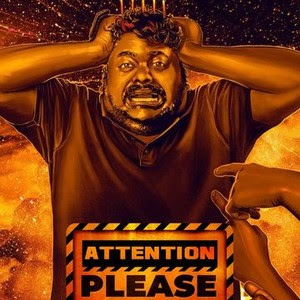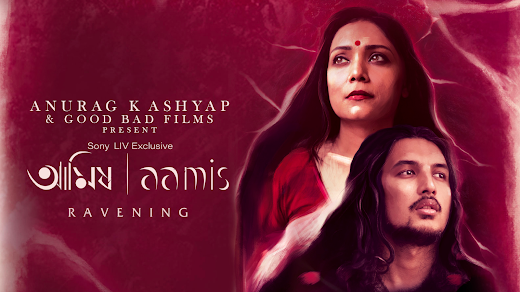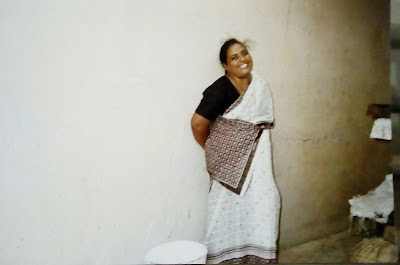Attention Please (2021): An Unsettling Yet Intriguing Narrative within Narratives
The first 10 minutes into the movie, you wonder if this is another bachelor's life flick. In the following 20 minutes, you try to comprehend where this movie takes you. For the rest of the hour, the narrative keeps you on edge until the last few minutes; you contemplate what the first scene is about. That's "Attention Please" for you, an experiment by Jithin Issac Thomas that maximized its minimal setting - 5 friends spend a night on a terrace. A cinematic experience that blurs the boundaries between reality and social commentary and shows the true power of storytelling.
The film delves into the lives of a group of bachelors bound by their dreams of making it in the world of cinema. The protagonist, Hari, brilliantly portrayed by Vishnu Govindan, stands out among the group as an aspiring screenwriter. He is the epitome of a "true artist," relentlessly devoted to his craft despite the challenging circumstances. The film's narrative is structured around Hari's own screenplays, effectively creating a series of stories within the main storyline. These tales are dark and disturbing, complemented by skillful sound effects that enhance their impact. With Vishnu Govindan's stellar performance anchoring the intense atmosphere, the film offers ample room for various interpretations through its nuanced presentation.
Director Jithin Issac Thomas fearlessly infuses politics into the film, mocking society's hesitation to confront the caste-based political reality. The underlying caste politics adds depth and drives the story forward. The title, "Attention Please," is a cry for acknowledgment and recognition. It implies the plea of the screenwriter to be taken seriously and not dismissed as a mere plagiarist or undervalued contributor in the filmmaking process.
As Hari cries in one of the scenes, "Only Syam Pushkaran can write like Syam Pushkaran; if I write like him, then what's the difference between the two of us?" This aspect adds an intriguing meta-narrative to the movie, where the screenwriter within the film seeks validation for their work, reflecting the broader challenges faced by aspiring writers in the industry.
The film also addresses discrimination issues, drawing attention to social hierarchies and power dynamics. Hari was once called "Harijan" (Dalit) by his teacher and faced discrimination based on his caste background and dark complexion. The metaphorical worm that cuts through the shots every now and then is probably Hari himself. Besides, the narration of the poem 'Pulayadi Makkal' was added to the script to hit a nerve. However, as he starts narrating his stories, he gains the upper hand and holds the attention of his dominant-caste friends, challenging the existing power dynamics. This highlights the transformative power of storytelling, where the oppressed can rise and writers can become heroes, providing a glimpse of liberation from societal hierarchies.
From a humorous conversational drama, the film gradually transforms into a thrilling psycho-thriller, successfully integrating politics within the framework of a suspenseful narrative. The cinematography by Himal Mohan adds another layer of depth to the film. Through various camera techniques, including handheld shots, static frames, extreme close-ups, and overhead angles, Mohan captures the essence of the character's experiences and the film's overall tone. The visual grammar aligns with the dark and disturbing themes, creating an immersive and thought-provoking atmosphere. Jithin Issac Thomas's filmmaking sensibility shines through his insistence on merging craft and politics in his content. Each story Hari narrates carries a dark shade, reflecting the traumas he has experienced or witnessed. The cinematography skillfully switches between brightly lit backdrops when Hari is cornered and darker spaces when he takes control. During Hari's peak psychopathic behavior, Himal Mohan adopts conventional ghostly lighting, intensifying the mood. The sound design and background score play a crucial role in keeping the viewers engaged and intrigued.
While the film's structure may draw comparisons to "Ozhivudivasathe Kali," directed by Sanal Kumar Sasidharan, the film's underlying thesis truly resonates. "Attention Please" conveys the belief that in stories and cinema, the marginalized can find empowerment, and writers can wield art as the ultimate weapon against discrimination. The film's ending leaves room for interpretation, allowing the audience to ponder the potential impact of art on societal change. However, 'Attention Please' could be another forgettable flick for those who need "action" in cinema. "There's nothing to see in the movie" is an understatement because you've failed to see the point. Besides, the film ends on an ambiguous note leaving it to the viewer's discretion to interpret it however they want.
Overall, "Attention Please" is a compelling film that intertwines narratives within narratives, exploring the struggles, dreams, and power dynamics of a group of aspiring filmmakers. Even the seemingly mundane conversations of these men effortlessly hold our attention throughout. Its dark and disturbing undertones, powerful performances, and thought-provoking themes make it a noteworthy addition to Malayalam cinema.













Very interesting to read 😯😯
ReplyDelete